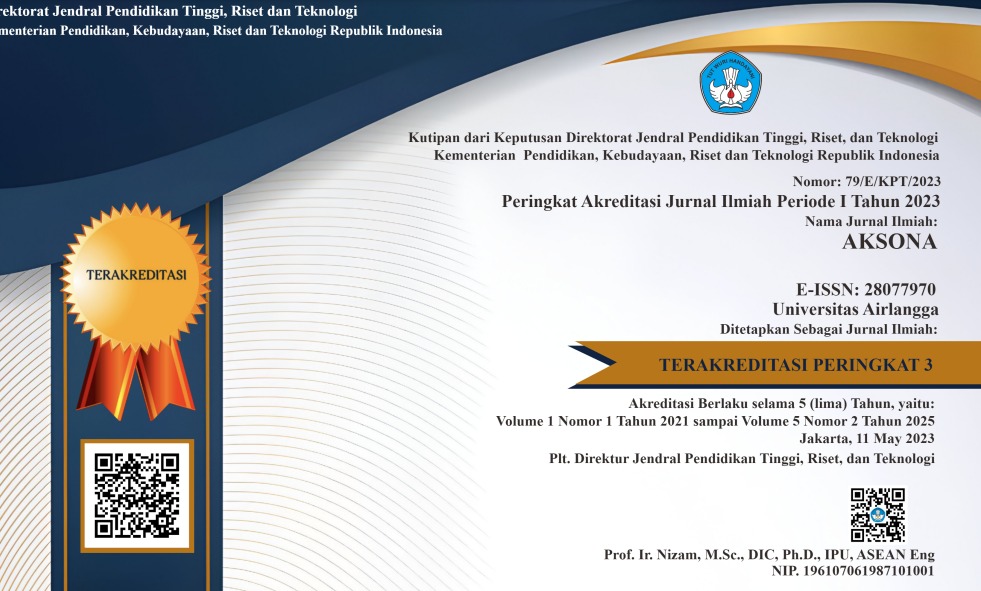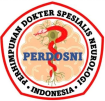Factor Affecting Insomnia in Ischemic Stroke Patients
Downloads
Highlight:
- Insomnia is prevalent in ischemic stroke patients and can hinder the recovery process.
- Stroke patients have a higher prevalence of insomnia and related symptoms than the general population.
- This study found a complex relationship between physical, psychological, and social risk factors for insomnia following ischemic stroke.
ABSTRACT
Introduction: Insomnia is common in ischemic stroke patients and can negatively impact on the post-stroke recovery process by interfering with the body's natural healing process, reducing the effectiveness of rehabilitation therapy, and affecting the recovery of cognitive function. Effective management and early intervention in insomnia are needed to enhance health services for stroke patients, promote optimal recovery, and improve their quality of life. Objective: This study aimed to identify and analyze the various factors associated with the occurrence of insomnia among patients with ischemic stroke. Methods: This is a cross-sectional study that used secondary data from medical records and primary data gathered through questionnaire-based interviews. The subjects were 105 ischemic stroke patients at the Neurology Clinic of Dr. Mohammad Hoesin Hospital, Palembang, between May to July 2024. The data acquired for further analysis included social and demographic details, comorbid conditions, depression, anxiety, pain, insomnia, medication use, sleep hygiene, and stroke clinical features. The data was then analyzed using IBM SPSS Statistics 24 and assessed through bivariate and multivariate analyses to evaluate the relationships between variables. Results: The prevalence of insomnia in this study was 42.9%, with mild insomnia observed in 26.7%, moderate insomnia in 13.3%, and severe insomnia in 2.9% of the subjects. Obstructive sleep apnea (OSA) (OR: 22.718), sleep hygiene index (OR: 6.490), and education level (OR: 3.453) were identified as determinants related to insomnia in ischemic stroke patients. Indirect factors associated with insomnia in ischemic stroke patients include depression, the number of comorbid diseases, pain, diabetes, a history of insomnia, anxiety, and stroke onset. Conclusion: There is a complex relationship between various physical, psychological, and social factors and the incidence of insomnia after ischemic stroke.
Zhang H, Ma W, Chen Y, Wang F, Wang J, Han P, et al. Long sleep duration associated with cognitive impairment in Chinese community-dwelling older adults. J Nerv Ment Dis. 2021; 209(12):925–32. doi: 10.1097/NMD.0000000000001401
Achermann P, Rusterholz T, Dürr R, König T, Tarokh L. Global field synchronization reveals rapid eye movement sleep as most synchronized brain state in the human EEG. R Soc Open Sci. 2016; 3(10):160201. doi: 10.1098/rsos.160201
Frange C, Murray BJ, Coelho FMS. The importance of sleep for successful neurorehabilitation after stroke. Sleep Sci. 2023; 16(3):e335–43. doi: 10.1055/s-0043-1772805
Baylan S, Griffiths S, Grant N, Broomfield NM, Evans JJ, Gardani M. Incidence and prevalence of post-stroke insomnia: A systematic review and meta-analysis. Sleep Med Rev. 2020;49:101222. doi: 10.1016/j.smrv.2019.101222
Cai H, Wang XP, Yang GY. Sleep disorders in stroke: An update on management. Aging Dis. 2021; 12(2):570–85. doi: 10.14336/AD.2020.0707
Kotterba S. Schlafstörungen bei neurologischen Erkrankungen. Nervenarzt. 2015; 86(6):759–71. doi: 10.1007/s00115-014-4204-6
Kim WH, Jung HY, Choi HY, Park CH, Kim ES, Lee SJ, et al. The associations between insomnia and health-related quality of life in rehabilitation units at 1 month after stroke. J Psychosom Res. 2017;96:10–4. doi: 10.1016/j.jpsychores.2017.02.008
Niu S, Liu X, Wu Q, Ma J, Wu S, Zeng L, et al. Sleep quality and cognitive function after stroke: The mediating roles of depression and anxiety symptoms. Int J Environ Res Public Health. 2023; 20(3):2410. doi: 10.3390/ijerph20032410
Zhang Z, Wang M, Gill D, Zhu W, Liu X. Genetically predicted sleep traits and functional outcome after ischemic stroke. Neurology. 2023; 100(11):e1159–65. doi: 10.1212/WNL.0000000000206745
Mansour AH, Ayad M, El-Khayat N, El Sadek A, Alloush TK. Post-stroke sleep disorders in Egyptian patients by using simply administered questionnaires: A study from Ain Shams University. Egypt J Neurol Psychiatry Neurosurg. 2020; 56:13. doi: 10.1186/s41983-020-0148-x
Tsai HJ, Wong YS, Ong CT. Clinical course and risk factors for sleep disturbance in patients with ischemic stroke. Liguori C, editor. PLoS One. 2022; 17(11):e0277309. doi: 10.1371/journal.pone.0277309
Karnik R, Peethambaran K, Adsule S. A cross-sectional, multi-centric, epidemiology study to determine the prevalence of insomnia and related sleep habits in Indian hypertensive patients. Int J Res Med Sci. 2017; 5(3):787–98. doi: 10.18203/2320-6012.ijrms20170508
Keskin A, Ünalacak M, Bilge U, Yildiz P, Güler S, Selçuk EB, et al. Effects of sleep disorders on hemoglobin A1c levels in type 2 diabetic patients. Chin Med J (Engl). 2015; 128(24):3292–7. doi: 10.4103/0366-6999.171415
Merin N, Antony R. Sleep disturbance and quality of sleep among patients with cardiovascular disease. Asian J Pharm Clin Res. 2019; 12(1):263–8. doi: 10.22159/ajpcr.2019.v12i1.28622
Surbakti UH, Pujiastuti RAD, Ritarwan K. Associations between depression and anxiety with sleep quality in post stroke patients. J Soc Med. 2023;2(3):67–73. doi: 10.47353/jsocmed.v2i3.40
Lind J, Andréll P, Grimby-Ekman A. Insomnia symptoms and chronic pain among patients participating in a pain rehabilitation program—A registry study. J Clin Med. 2021; 10(18):4040. doi: 10.3390/jcm10184040
Andersen ML, Araujo P, Frange C, Tufik S. Sleep disturbance and pain. Chest. 2018; 154(5):1249–59. doi: 10.1016/j.chest.2018.07.019
Wichniak A, Wierzbicka A, Walęcka M, Jernajczyk W. Effects of antidepressants on sleep. Curr Psychiatry Rep. 2017; 19(9):63. doi: 10.1007/s11920-017-0816-4
Hein M, Lanquart J-P, Loas G, Hubain P, Linkowski P. Prevalence and risk factors of moderate to severe obstructive sleep apnea syndrome in insomnia sufferers: A study on 1311 subjects. Respir Res. 2017; 18(1):135. doi: 10.1186/s12931-017-0616-8
Zhang Y, Ren R, Lei F, Zhou J, Zhang J, Wing Y-K, et al. Worldwide and regional prevalence rates of co-occurrence of insomnia and insomnia symptoms with obstructive sleep apnea: A systematic review and meta-analysis. Sleep Med Rev. 2019; 45:1–17. doi: 10.1016/j.smrv.2019.01.004
Rahmini JA, Yani A, Hariyati RTS, Masfuri M, Pujasari H. The effect of sleep hygiene education for improving sleep quality among patients with stroke: A systematic review. Malahayati Int J Nurs Heal Sci. 2024; 7(3):369–78. doi: 10.33024/minh.v7i3.146
Copyright (c) 2025 Agustina Fajarini, Mukhlisa Mukhlisa, Sri Handayani, Pinto Desti Ramadhoni, Irfannuddin Irfannuddin

This work is licensed under a Creative Commons Attribution-ShareAlike 4.0 International License.





















